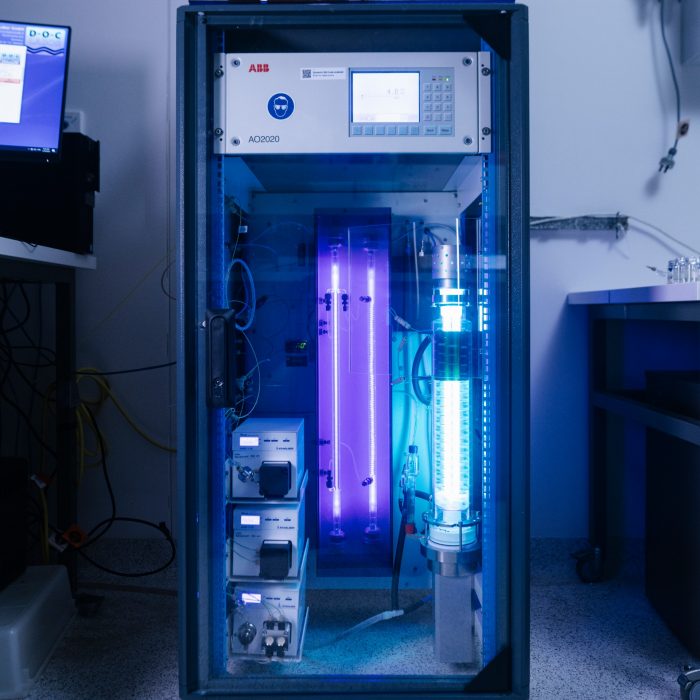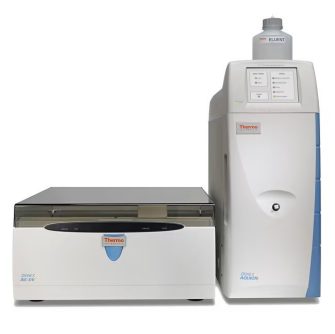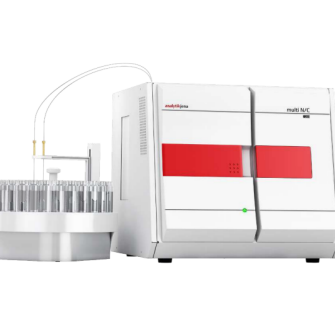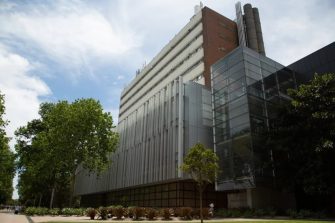LC-OCD Model 8
Organic carbon detection-model

Description
The LC-OCD Model 8 performs chromatographic separation of organic carbon in water/aqueous solution. (speciation of humic substances).
Specifications
-
- Ambient temperature
- 18 … 30 °C / 64 … 86 °F stable ±1 °C per hour is required for high sensitivity
- Humidity
- 0 … 80% RF, non-condensing
-
- Power supply
- 100 … 240 V @ 50/60 Hz max. 0.50 kWh (230 V @50 Hz)
- DOCOX reactor
- Electronic ballast with up to 35 W
- DONOX reactor
- Electronic ballast with up to 35 W
- Thin film reactor
- Electronic ballast with up to 35 W
-
- Carrier gas
- Nitrogen 4.0 or 5.0, about 10 L/h
- Argon gas may be used as well.
-
- Mobile phase
- 1.5g/l Na2HPO4.2H2O + 2.5g/l KH2PO4, 1.5ml per min.
- Acidification solution · 0.5g/l Potassium persulphate + 4ml Phosphoric acid/l
-
- Measuring range DOC
- > 1 – 5000 μg/L (ppb, org. Carbon)
- Measuring range LC-OCD
- > 0.5 – 5000 μg/L (ppb, org. Carbon)
- LOD LC-OCD
- > 0.5 -50 μg/L (ppb, org. Carbon, compound specific)
Applications
- The LC-OCD Model 8 system is suitable for water and water extracts of a variety of samples, including:
- Natural products: - Plant material, animal tissues, food, compost, manure.
- Environmental
- Sediments, sludges, soils
- Biological · Chemical
Instrument location
Inductively Coupled Plasma - Elemental Analysis Laboratory (ICP)
Room B36
June Griffith Building (F10)
UNSW Sydney, NSW 2033
Email: icplab@unsw.edu.au
Rabeya Akter
Senior Technical Officer
-
Email
r.akter@unsw.edu.au
Khorshed Chinu
Technical Officer
-
Email
k.chinu@unsw.edu.au
Parent facility
Explore more instruments, facilities & services
Our infrastructure and expertise are accessible to UNSW students and staff, external researchers, government, and industry.





